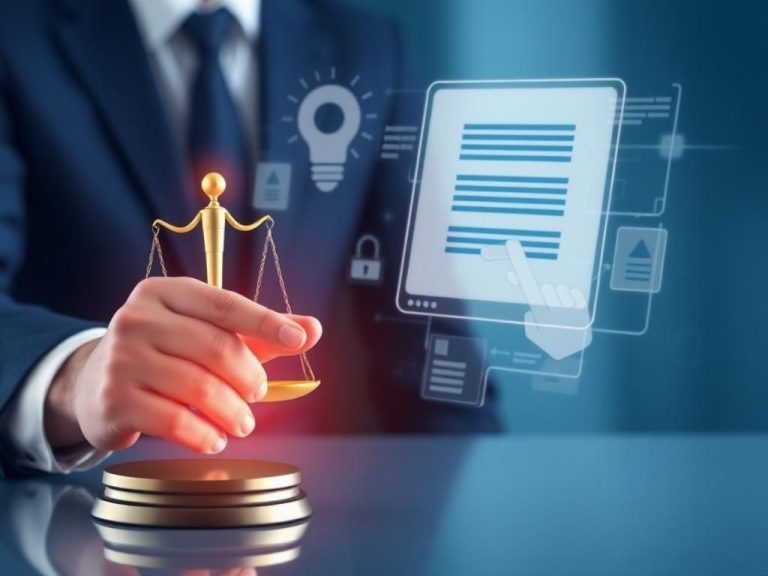As the legal field continues to evolve, the integration of artificial intelligence (AI) tools into everyday practices has become more prevalent. In 2025, the landscape of AI tools for legal summarization is set to transform how attorneys, paralegals, and legal professionals work. By leveraging advanced algorithms and machine learning capabilities, these tools not only streamline the summarization process but also enhance accuracy and efficiency. This article explores the leading AI technologies that are reshaping legal summarization.
The Need for AI in Legal Summarization
Legal documents are often lengthy, filled with complex language, and can vary significantly in structure. Summarizing such documents manually can be time-consuming and prone to human error. AI tools address these issues by:
- Reducing Time: Automation of summarization tasks allows legal professionals to focus on more strategic work.
- Increasing Accuracy: AI minimizes the risk of oversight by consistently applying rules and algorithms.
- Enhancing Accessibility: With AI tools, even complex legal jargon can be translated into simpler terms.
Key Features of AI Summarization Tools
When evaluating AI tools for legal summarization, consider the following features:
1. Natural Language Processing (NLP)
NLP capabilities allow the software to understand and interpret human language, which is crucial for accurately summarizing legal text.
2. Machine Learning Algorithms
These algorithms learn from vast datasets and improve over time, ensuring that summarizations are relevant and precise.
3. Customization Options
Tools that allow customization, such as adjusting the length of summaries or focusing on specific legal aspects, can be particularly beneficial.
Top AI Tools for Legal Summarization in 2025
Here’s a breakdown of some of the leading AI tools expected to dominate the legal summarization market in 2025:
| Tool Name | Key Features | Best For |
|---|---|---|
| LexisNexis BriefAnalyzer | NLP, Citation Analysis, Custom Summaries | Law Firms of all sizes |
| Casetext CoCounsel | Machine Learning, Contextual Summaries, User-Friendly Interface | Small to Medium Law Firms |
| Ravel Law | Data Visualization, Advanced Analytics, Case Law Summarization | Litigation Support |
| Everlaw | Collaboration Tools, Document Summarization, Workflow Integration | Litigation Teams |
How to Choose the Right AI Tool for Your Firm
Selecting the best AI summarization tool for a legal practice requires careful consideration of various factors:
1. Assess Your Firm’s Needs
Evaluate what your firm requires in terms of document types, the volume of summarizations, and specific features that align with your processes.
2. Consider Integration Capability
The selected tool should seamlessly integrate with existing platforms and technologies used in your firm to ensure smooth workflow.
3. Evaluate User Experience
Opt for tools that prioritize user-friendly interfaces and provide ample support and training to ensure quick adoption by staff.
Case Studies: Successful Implementations of AI Tools
Here are examples of how legal firms have successfully implemented AI summarization tools:
Case Study 1: Large Law Firm
A large law firm integrated LexisNexis BriefAnalyzer, resulting in a 30% reduction in time spent on document reviews. Attorneys reported higher satisfaction due to the tool’s accuracy and ability to generate specific summaries tailored to case needs.
Case Study 2: Small Boutique Firm
A small boutique firm utilized Casetext CoCounsel, focusing on family law cases. The automated summarization allowed lawyers to quickly prepare for court appearances, enhancing case preparation efficiency by 40%.
Future Trends in AI Legal Summarization
As technology continues to advance, the future of AI in legal summarization is promising. Here are some anticipated trends:
- Increased Personalization: AI tools will offer even more customized experiences, allowing legal professionals to dictate the tone, style, and length of summaries.
- Integration with Blockchain: The ability to summarize blockchain-based contracts and agreements will emerge as more firms adopt digital solutions.
- Improved Multilingual Capabilities: As global legal practices become commonplace, AI tools will enhance their ability to summarize documents in multiple languages.
Conclusion
AI tools for legal summarization are not just a trend; they are rapidly becoming essential in the legal industry. As firms of all sizes seek to improve efficiency and accuracy, investing in advanced AI technologies will undoubtedly prove beneficial. The tools discussed here represent just the beginning of a significant transformation in how legal professionals handle documentation. By staying informed and adaptable, legal teams can harness the full potential of AI tools to enhance their practices and better serve their clients.
FAQ
What are the top AI tools for legal summarization in 2025?
In 2025, some of the top AI tools for legal summarization include tools like LegalSifter, Casetext, and LawGeex, which leverage natural language processing to provide concise summaries of legal documents.
How does AI legal summarization improve efficiency?
AI legal summarization improves efficiency by automating the extraction of key information from lengthy legal texts, allowing legal professionals to save time and focus on more complex tasks.
Are AI tools for legal summarization reliable?
Yes, many AI tools for legal summarization are designed to provide accurate and reliable summaries, but it is essential to review the summaries for context and ensure compliance with legal standards.
What features should I look for in an AI legal summarization tool?
When choosing an AI legal summarization tool, look for features such as natural language processing, integration with legal databases, user-friendly interfaces, and the ability to customize summaries based on specific legal needs.
Can AI summarization tools replace human lawyers?
While AI summarization tools can significantly assist legal professionals by streamlining document review processes, they are not designed to replace human lawyers, who provide essential legal judgment and expertise.
What is the future of AI in legal summarization?
The future of AI in legal summarization looks promising, with advancements in machine learning and natural language processing expected to enhance accuracy, efficiency, and the ability to handle complex legal language.




